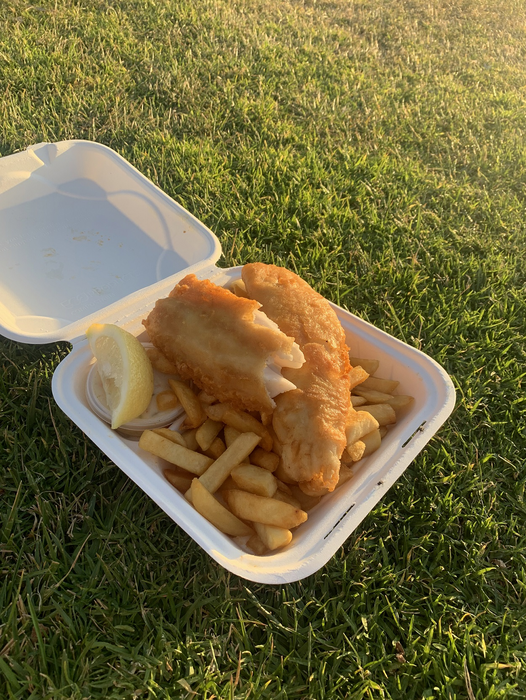It is a popular takeaway choice at fish and chip shops, but new research has revealed threatened species of shark are being sold as flake at some outlets across South Australia.

Credit: The University of Adelaide.
It is a popular takeaway choice at fish and chip shops, but new research has revealed threatened species of shark are being sold as flake at some outlets across South Australia.
The University of Adelaide study is the first of its kind to examine flake fillets sold at South Australian fish and chip shops.
The team of researchers analysed the DNA of fillets from more than 100 retailers across Adelaide and regional areas of South Australia to determine what type of fish were being sold as flake – an umbrella term used to describe shark meat fillets.
“Only 27 per cent of all samples were identified as gummy shark, a species that has a sustainable population, and is one of only two species that is recommended to be labelled as flake in Australia,” said first author Ashleigh Sharrad, a researcher from the University of Adelaide’s School of Biological Sciences.
The study found four threatened species, such as the short-fin mako shark and smooth hammerhead shark, were also being sold as flake at some takeaway outlets.
A total of nine different types of species were identified in the study, including some which are not found in Australian waters.
“Food fraud in the seafood industry is a growing concern and mislabelling may occur. It can have potential implications on human health, the economy, and species conservation,” said the University of Adelaide’s Professor Bronwyn Gillanders, a researcher in the School of Biological Sciences and the Environment Institute.
Of all the flake samples analysed, only one in 10 retailers could correctly identify the type of fish being sold while 20 per cent of the fillets were mislabelled and the remainder had ambiguous labelling.
“It is important to note that while a broad variety of species are being sold as flake, smaller retailers can’t be accused of mislabelling because they are most likely unaware when they purchase bulk, processed or frozen fish fillets,” said Ms Sharrad.
The Australian Fish Names Standard recommends the term flake only be used to describe gummy shark and New Zealand rig, but this guideline is not mandatory.
“Our results highlight the need for clearer national guidelines or labelling laws for shark fillets,” said Ms Sharrad.
“This is the key to building trust across the supply chain, boosting demand for local, sustainable catch and importantly, empowering consumers and retailers to make informed choices.”
Professor Gillanders was the senior author of the study, while Dr Patrick Reis Santos and Associate Professor Jeremy Austin also contributed to the research.
The research has been published in the international journal, Food Control.
Journal
Food Control
DOI
10.1016/j.foodcont.2023.109606
Method of Research
Observational study
Subject of Research
Animal tissue samples
Article Title
Umbrella terms conceal the sale of threatened shark species: A DNA barcoding approach
Article Publication Date
21-Jan-2023
COI Statement
N/A




